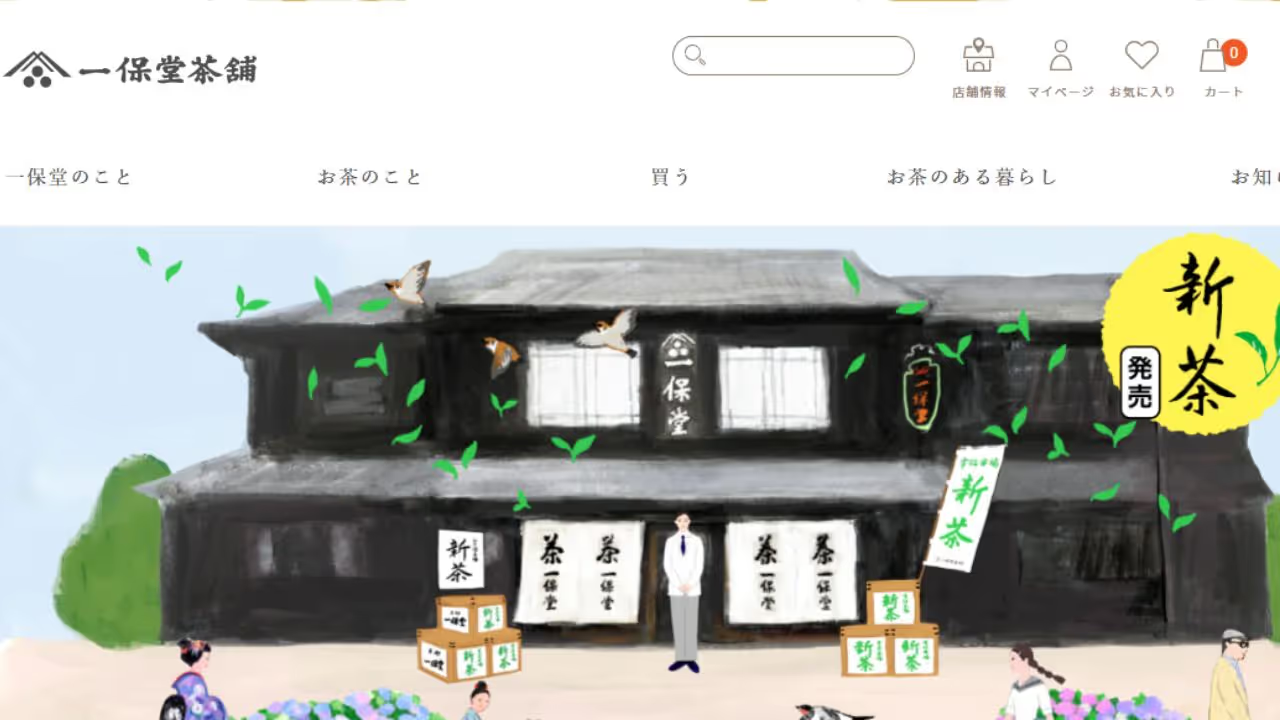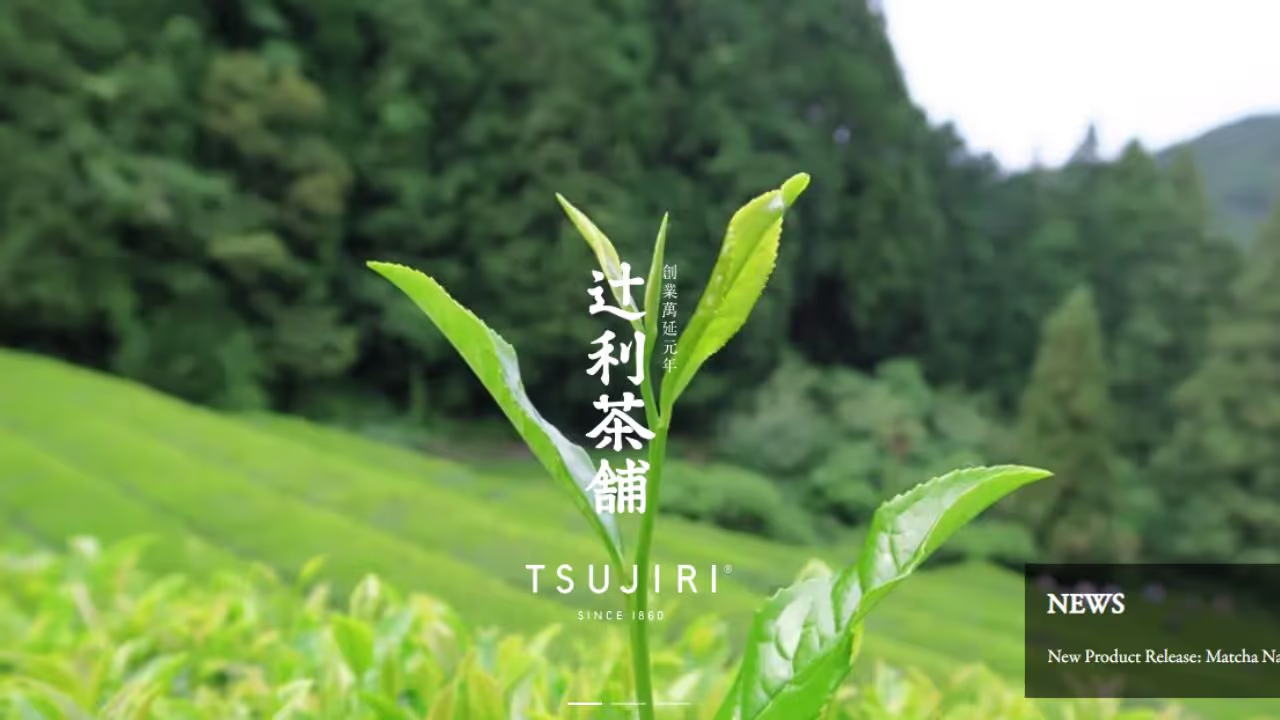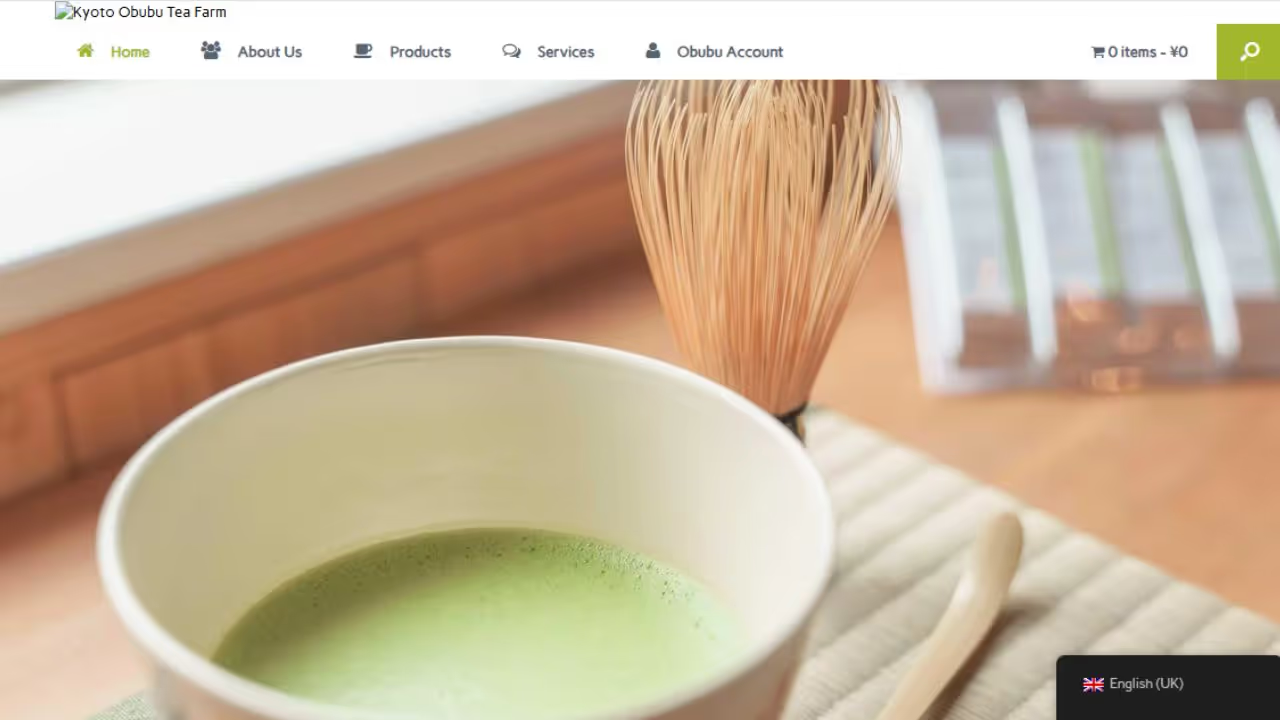Top 7 Matcha Tea Brands to Try in Japan
.avif)
Matcha is more than a trending health drink—it's a deep-rooted part of Japanese culture, with centuries of tradition behind each bright green scoop. In Japan, matcha is enjoyed both ceremonially and casually, and it is used in everything from traditional tea rituals to modern desserts and lattes. But not all matcha is created equal. Depending on whether you're drinking it straight or blending it into recipes, the quality, origin, and grade of matcha make a huge difference.
Japanese locals know this well, which is why certain matcha brands have built strong followings based on trust, flavor, and versatility. From the refined leaves of Kyoto’s Uji region to matcha crafted for baking in everyday kitchens, the brands below are considered the best in Japan, whether you're whisking it into a bowl or mixing it into your next batch of cookies.
Best Matcha Tea Brands in Japan (for Drinking or Baking)
- Marukyu Koyamaen (丸久小山園)
- Ippodo Tea (一保堂茶舗)
- Tsujiri (辻利)
- Morihan (森半)
- Nishio Matcha (西尾の抹茶)
- Kyoto Obubu Tea Farms
- Uji En (宇治園)
1. Marukyu Koyamaen (丸久小山園)

Source: Marukyu Koyamaen Homepage
Marukyu Koyamaen is one of the most respected matcha producers in Japan. It is located in Uji, Kyoto—arguably the epicenter of Japanese green tea. With a history stretching over 300 years, this company is beloved for its premium matcha, which is intensely aromatic and packed with umami.
Their high-grade ceremonial matcha, like Matcha Tenju or Choan, is ideal for sipping in a traditional tea setting. At the same time, the slightly lower-grade blends like Isuzu are perfect for lattes and light culinary use. Locals appreciate Marukyu Koyamaen’s consistency and purity, making it a go-to for both connoisseurs and everyday drinkers.
2. Ippodo Tea (一保堂茶舗)

Source: Ippodo Tea Homepage
Founded in 1717, Ippodo Tea is another Kyoto-based brand renowned for its balance and approachability. While it specializes in premium tea for drinking, Ippodo also offers matcha blends that work beautifully in lattes and cooking.
Popular among beginners and seasoned tea lovers alike, Ippodo’s Ummon-no-mukashi is a high-grade ceremonial matcha packed with umami. For a more affordable option, Horai-no-Mukashi or Sayaka-no-Mukashi are interesting choices. Locals love how Ippodo makes traditional tea accessible without sacrificing authenticity.
3. Tsujiri (辻利)

Source: Tsujiri Homepage
Tsujiri brings a modern flair to historic Kyoto tea culture. Best known for its matcha cafes and desserts, Tsujiri makes matcha approachable for the everyday drinker and home baker. While it doesn't focus on ultra-premium ceremonial blends, it excels in producing matcha that pairs well with milk, sugar, and sweets.
Its unsweetened matcha powder is excellent for homemade drinks, and its culinary matcha and latte mixes are staples in kitchens across Japan. Locals turn to Tsujiri when they want high-quality, easy-to-use matcha for both fun and flavor.
4. Morihan (森半)

Source: Morihan Homepage
A familiar name in supermarkets across Japan, Morihan is the people’s choice for affordable and tasty matcha. Their lineup includes everything from culinary-grade matcha to instant lattes, making them a practical option for everyday use.
Morihan’s unsweetened matcha is excellent for blending with milk or using in recipes, and its wide availability makes it a household staple. While it might not be the first choice for formal tea ceremonies, Morihan delivers impressive quality for casual drinking and baking.
5. Nishio Matcha (西尾の抹茶)

Source: Nishio Matcha Homepage
Nishio Matcha hails from Aichi Prefecture, a region known for its dedicated matcha cultivation. Over 90% of the tea leaves grown here are Tencha, the key ingredient in matcha. Thanks to its unique cultivation methods, Nishio's matcha is cherished for its vibrant color, smooth umami, and rich flavor.
Tea leaves are grown under special covers to enhance sweetness and reduce bitterness. This, combined with traditional stone grinding methods using a Chausu, gives Nishio Matcha its distinctive profile. It's a preferred choice among chefs and bakers for both its bold flavor and its ability to retain color and flavor in culinary applications.
6. Kyoto Obubu Tea Farm

Source: Kyoto Obubu Tea Farm Homepage
Kyoto Obubu is a small tea farm in Wazuka, near Uji. It offers a transparent, community-oriented direct-to-consumer model and is known for its fresh, seasonal matcha and educational approach to tea culture.
Their ceremonial matcha, like Gokou, is delicate and flavorful, while their basic culinary powders are great for experimenting with matcha in cooking. Additionally, they also offer organic matcha. Obubu is especially loved by those who want a more personal connection to the farmers and the land.
7. Uji En (宇治園)

Source: Uji En Homepage
Uji En is a well-respected tea brand from the heart of Kyoto’s tea-growing region. With a long history rooted in Uji, Uji En produces matcha that is ideal for both formal tea settings and contemporary uses.
Their ceremonial-grade matcha boasts a smooth, rich profile and deep green hue, making it a top pick for tea lovers. For culinary use, Uji En also offers more economical matcha powders with robust flavor, which are perfect for baking and making lattes. Locals appreciate Uji En's balance of heritage and accessibility and its beautifully packaged tea, which is often used for gifts.
Conclusion
Matcha in Japan is more than a drink—it’s an experience tied to region, ritual, and refinement. Choosing the right matcha can elevate a simple moment into a cherished tradition, whether enjoyed quietly at home or shared with friends through creative dishes.
From the elite ceremonial matcha of Marukyu Koyamaen to the kitchen-friendly powders of Morihan and Nishio Matcha, each brand showcases the diverse expressions of this treasured green tea. These matcha producers honor centuries of cultivation and craftsmanship, offering options that suit every taste and need.
For anyone looking to experience authentic Japanese matcha, starting with these beloved brands ensures a journey filled with rich flavors, cultural heritage, and unforgettable moments in every cup and creation.















